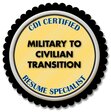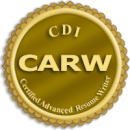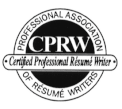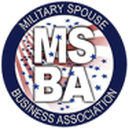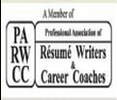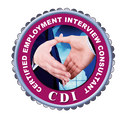
The average length of job tenure is 2.8 years for employees age 25 to 34 — according to a 2016 report by the Bureau of Labor Statistics. Nearly 65 % of employers use some sort of pre-employment skills test. According to a survey by the American Management Association, “Almost 90% of firms that test job applicants say they will not hire jobseekers when pre-employment testing finds them to be deficient in basic skills.” According to a Harvard Study, 15 percent of the reason a person is hired is based on hard skills, while 85 percent of the reason people excel on the job and are successful is based on their people skills (soft skills).
Types of Pre-Employment Tests: The testing discussed here does not include drug and physical exams/ability tests or testing required to earn professional certifications/licenses.
1. Job Knowledge Tests & Employment Aptitude Tests measure a candidate’s technical or theoretical expertise in a field. These kinds of tests are most useful for jobs that require specialized knowledge or high levels of expertise (hard skills).
2. Cognitive Tests: Cognitive or aptitude tests determine an applicant’s potential ability to perform job functions once trained. The tests are written or oral and are used to measure a candidate’s reasoning (verbal, numerical, and inductive), memory, perceptual speed and accuracy, as well as skills in arithmetic and reading comprehension.
3. Personality Tests: Personality tests have taken on a 20% rise. Personality assessments can offer insight into a candidate’s “cultural fit” and whether their personality can translate into job success. These tests typically measure 1 or more of 5 personality dimensions: extroversion, emotional stability, agreeableness, conscientiousness, and openness to experience.
4. Integrity Tests: Employee theft and fraud can cost a company on average $9 per day, per employee. Integrity tests examine an applicant’s attitude and approach towards risky work behavior, theft, and lying; misuse of company resources, email, and the Internet; use of drugs and alcohol; trust with confidential information; and personal responsibility, including safety and dependability.
5. Emotional Intelligence Testing: Emotional intelligence (EQ) is an individual’s ability to understand his/her own emotions and the emotions of others. Strong EQ is important for most jobs — and critical for some — since emotionally intelligent people can work well with colleagues, interact with the public, and handle disappointments/frustrations in a mature and professional way. For example, the online application for McDonald’s includes 35 questions for jobseekers, and they range from the very job-specific to more general questions.
Legal and Ethical Considerations of Pre-Employment Testing: Company testing cannot discriminate on the basis of race, color, sex, national origin, religion, disability, or age. The test must comply with Equal Employment Opportunity (EEO) laws. The Americans with Disabilities Act (ADA) makes it unlawful for private employers with 15 or more employees — and local, state, and federal government employers — to discriminate against qualified applicants with disabilities. The Employee Polygraph Protection Act (EPPA) of 1988 prohibits most private employers from using lie detector tests with certain exceptions.
Although pre-employment testing may appear to be only beneficial to the employer, in reality, the jobseeker also wins. It is far better to be screened out of a position and/or company that does not fit one’s skills, values, and personality than to be hired for the position, and eventually dread going to work every day.
Learn more about pre-employment testing and utilize sample testing here:
https://www.cebglobal.com/shldirect/index.php/en/practice-tests/
 RSS Feed
RSS Feed



